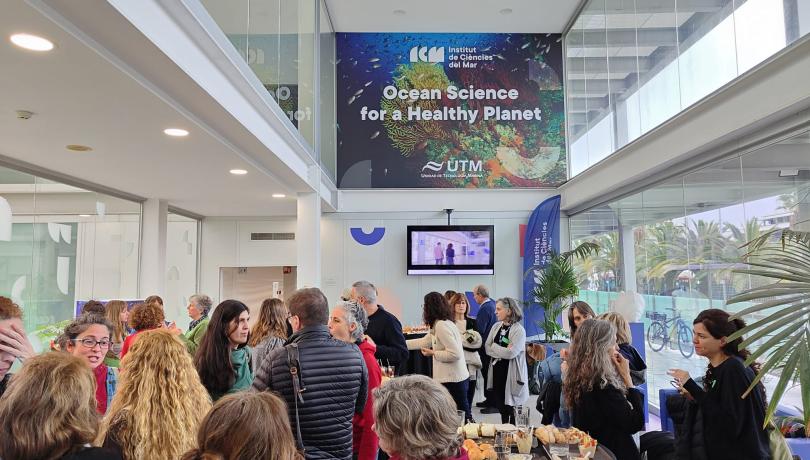The Hipatia Network provides support and mentorship to help overcome barriers that hinder the career advancement of female scientists.

More than 130 researchers from 23 centers of the Spanish National Research Council (CSIC) gathered today for the first meeting of the Hipatia Network. This CSIC initiative, aligned with the HR Excellence in Research seal, aims to address gender inequality in the Earth and Environment area. The network seeks to highlight and reverse the low representation of women in this field, particularly at higher research levels, compared to the rest of the CSIC—a situation that has worsened over the last decade.
The meeting, held at the Institut de Ciències del Mar (ICM), was supported by CSIC President Eloísa del Pino. The event's goal is to mobilize female researchers in this initial network action, encouraging them to participate massively in the upcoming internal promotion call. This aims to break unfounded perceptions about female participation and foster the professional advancement of women scientists.
The Hipatia Network, an initiative of the CSIC’s Women and Science Commission and the Earth and Environment Area Commission, seeks to create collaboration nodes among female scientists at different career levels, providing support and mentorship.
Currently, according to data from the latest "IMI2024 Women Researchers Report" by the Women and Science Commission, the Earth and Environment subarea has only 16 female Research Professors compared to 97 male Research Professors. This 14% representation is the lowest within CSIC and reflects the persistent gender inequality in the field.
“One of the reasons often cited to justify the lack of change is historical legacy. Another, which is not supported by data, is an unfounded perception of low participation of female researchers in internal promotion processes—something that is simply not true, as the numbers show,” explains Carmen Mayoral, vice president of the Women and Science Commission.
“The Hipatia Network’s strategy, with this first action, aims to engage women who have already been promoted, those who have not yet succeeded, and even those who have not considered it or believe it is not an option for them. The meeting will create support and mentorship nodes to guide and assist them through the internal promotion process,” adds Penélope González Sampériz, a researcher at the Pyrenean Institute of Ecology and one of the network's coordinators.